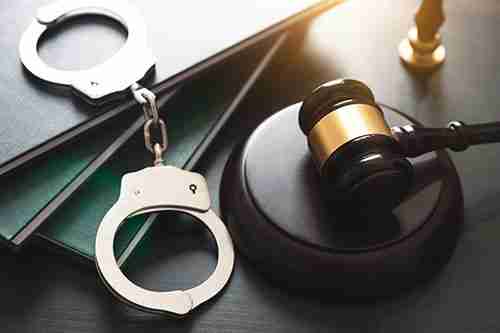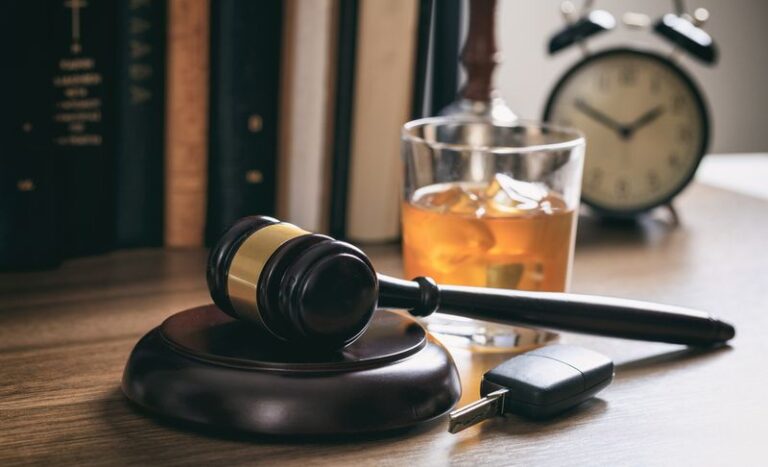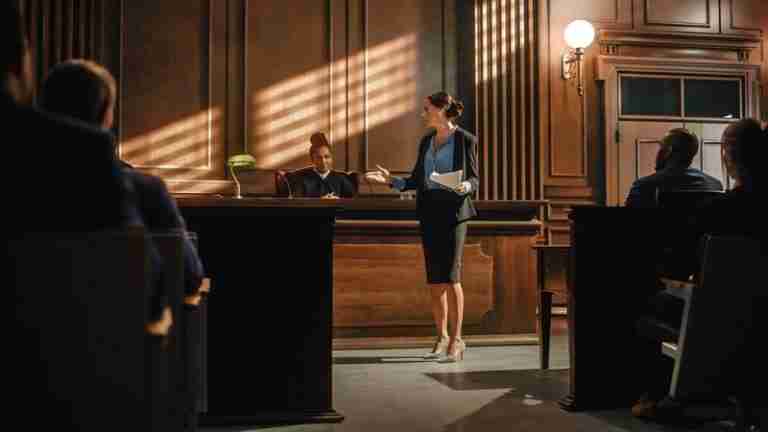Drug trafficking charges can have severe consequences, including lengthy prison sentences, hefty fines, and a criminal record that can impact your personal and professional life.
If you are facing drug trafficking charges, it is critical to hire an experienced drug trafficking defense lawyer who can help you build a strong defense strategy.
Call the SHElaw firm® criminal defense attorneys today at 470-378-1162 and schedule a consultation. SHE WINS!
The Role of a Drug Trafficking Defense Lawyer
A drug trafficking defense lawyer is responsible for representing individuals who are charged with drug trafficking offenses. Their primary role is to ensure that their clients receive a fair trial and to advocate for their clients’ rights throughout the legal process.
One of the most crucial roles of a drug trafficking defense lawyer is to investigate the case thoroughly. They review all the evidence against their clients, including search and seizure reports, witness statements, and police reports.
They will also look for any flaws or weaknesses in the prosecution’s case that can be exploited to the client’s advantage.
What Are the Strategies and Approaches for Successful Defense for a Drug Crime?
To develop a successful defense strategy, a drug trafficking defense lawyer will use several approaches, including:
Challenging the Evidence
One of the most common defense strategies used in drug trafficking cases is to challenge the evidence presented by the prosecution.
This strategy involves scrutinizing all the evidence against the defendant, including search and seizure reports, witness statements, and police reports, to identify any inconsistencies, errors, or constitutional violations that can weaken the prosecution’s case.
There are several ways a defense lawyer can challenge the evidence in a drug trafficking case, including:
- Probable Cause: To conduct a search, the police must have a valid warrant or probable cause. If the defense can prove that the police did not have probable cause to conduct a search, any evidence obtained during that search can be suppressed.
- Chain of Custody: The prosecution must establish a chain of custody for any seized evidence to ensure that it has not been tampered with or contaminated. A defense lawyer can challenge the chain of custody by questioning whether the evidence was properly handled, stored, and transferred.
- Miranda Rights: If the police did not read the defendant their Miranda rights, any statements made by the defendant during interrogation may be inadmissible in court.
- Expert Testimony: A defense lawyer can challenge the prosecution’s expert testimony by presenting their own expert testimony, which may contradict the prosecution’s evidence or raise doubts about its reliability.
- Witness Credibility: A defense lawyer can challenge the credibility of the prosecution’s witnesses by cross-examining them and highlighting any inconsistencies or biases in their testimony.
Challenging the evidence in a drug trafficking case can be a complex process, requiring a thorough understanding of the state of Georgia crime laws and the details of the case.
A skilled defense lawyer will work closely with their client to investigate the evidence, identify any weaknesses, and develop a strategy that will give their client the best chance of a successful outcome.
Ultimately, the goal of challenging the evidence is to weaken the prosecution’s case, create doubt in the minds of the jurors, and secure a favorable verdict for the defendant.
Suppression of Evidence
In a drug trafficking case, suppressing evidence is a powerful defense strategy that can significantly weaken the prosecution’s case. This strategy involves filing a motion to exclude or suppress any evidence that was obtained illegally or in violation of the defendant’s constitutional rights.
If the evidence is suppressed, it cannot be used against the defendant at trial. There are several ways that a defense lawyer can argue for the suppression of evidence in a drug trafficking case:
- Illegal Search and Seizure: The Fourth Amendment of the U.S. Constitution protects individuals from unreasonable searches and seizures by the government. If the police conducted a search without a warrant or without probable cause, any evidence obtained during that search can be suppressed.
- Miranda Rights: The Fifth Amendment of the U.S. Constitution requires the police to read individuals their Miranda rights before conducting a custodial interrogation. If the police failed to do so, any statements made by the defendant during the interrogation may be inadmissible in court.
- Violation of the Exclusionary Rule: The exclusionary rule prevents the use of illegally obtained evidence in court. If the prosecution obtained evidence in violation of this rule, the defense can argue for its exclusion.
- Violation of Due Process: If the prosecution obtained evidence through coercion, duress, or other unconstitutional means, the defense can argue that the evidence should be suppressed because it violates the defendant’s due process rights.
Suppression of evidence is a complex legal process that requires a thorough understanding of the law and the details of the case. A skilled defense lawyer will work closely with their client to investigate the evidence, identify any flaws or violations, and file a motion to suppress the evidence if necessary.
Ultimately, the goal of suppressing evidence is to weaken the prosecution’s case, create doubt in the minds of the jurors, and secure a favorable outcome for the defendant.
Negotiating a Plea Bargain
Negotiating a plea deal is another common defense strategy used in drug trafficking cases. This strategy involves working with the prosecution to reach a mutually beneficial agreement, in which the defendant agrees to plead guilty to a lesser charge or accept a reduced sentence in exchange for a plea deal.
Plea deals can be an attractive option for defendants who want to avoid the uncertainty of a trial and the risk of a more severe sentence.
There are several factors that can influence the negotiation of a plea deal, including:
- Strength of the Prosecution’s Case: The prosecution’s case strength plays a significant role in plea negotiations. If the evidence against the defendant is strong, the prosecution may be less willing to offer a favorable plea deal.
- Prior Criminal Record: A defendant’s prior criminal record can also impact plea negotiations. If the defendant has a history of drug trafficking or other criminal activity, the prosecution may be less willing to offer a plea deal.
- Cooperation: If the defendant is willing to cooperate with law enforcement and provide information or assistance that can aid in the investigation or prosecution of other individuals involved in drug trafficking, the prosecution may be more willing to offer a favorable plea deal.
- Sentencing Guidelines: Sentencing guidelines, which vary by state and jurisdiction, can also impact plea negotiations. A defense lawyer may use sentencing guidelines to negotiate a more favorable sentence for their client.
- Mitigating Factors: A defense lawyer may also present mitigating factors, such as the defendant’s lack of criminal history or their efforts to address their drug addiction, to negotiate a more favorable plea deal.
Negotiating a plea deal requires a skilled defense lawyer who can effectively advocate for their client and navigate the complexities of the legal system.
A defense lawyer will work closely with their client to negotiate the most favorable plea deal possible, taking into account the unique circumstances of the case and the client’s best interests.
Ultimately, the goal of negotiating a plea deal is to secure a favorable outcome for the defendant while minimizing the risk of a more severe sentence.
Defending the Client at Trial
Defending the client at trial is another important defense strategy in drug trafficking cases. This strategy involves presenting a strong defense during trial to challenge the prosecution’s evidence and argue for the defendant’s innocence.
A successful trial defense strategy requires thorough preparation, a deep understanding of the law, and the ability to present a compelling case to the jury.
Here are some key elements of a successful trial defense strategy:
- Cross-Examination: One of the most effective ways to challenge the prosecution’s evidence is through cross-examination. During cross-examination, the defense lawyer can ask questions that reveal inconsistencies, contradictions, or weaknesses in the prosecution’s case. Effective cross-examination can cast doubt on the prosecution’s evidence and strengthen the defense’s case.
- Expert Testimony: Expert testimony can be a powerful tool in a drug trafficking case. A defense lawyer may call upon experts in fields such as forensic science, pharmacology, or addiction treatment to challenge the prosecution’s evidence and provide an alternative explanation for the defendant’s behavior.
- Witnesses: Witnesses can also play a critical role in a drug trafficking trial defense. A defense lawyer may call upon witnesses who can provide testimony that contradicts the prosecution’s case or supports the defendant’s innocence.
- Legal Arguments: A skilled defense lawyer can make compelling legal arguments that challenge the prosecution’s case and highlight the weaknesses of the evidence. Legal arguments can also be used to challenge the admissibility of evidence, question the credibility of witnesses, and highlight flaws in the prosecution’s case.
- Closing Argument: The closing argument is the defense lawyer’s opportunity to summarize the case, challenge the prosecution’s evidence, and present a persuasive argument for the defendant’s innocence. A well-crafted closing argument can be a powerful tool in swaying the jury’s opinion and securing a favorable outcome for the defendant.
Defending the client at trial requires a skilled defense lawyer who can effectively present a compelling case to the jury. A successful trial defense strategy involves careful preparation, thorough investigation of the evidence, and a deep understanding of the law.
Ultimately, the goal of defending the client at trial is to secure a favorable outcome for the defendant and protect their rights throughout the legal process.
Facing a Drug Trafficking Charge? Call SHElaw firm® Today!
In conclusion, the role of a drug trafficking defense lawyer is crucial in ensuring that their clients receive a fair trial and a strong defense strategy.
By investigating the case thoroughly, challenging the evidence, and using various approaches such as suppression of evidence, negotiating a plea bargain, and defending the client at trial, a skilled defense lawyer can significantly increase the chances of a successful outcome for their client.
If you are facing drug trafficking charges, it is essential to hire a competent defense lawyer who can advocate for your rights and protect your interests throughout the legal process.
At SHElaw firm® we have experienced and knowledgeable drug trafficking lawyers who can help you to fight for your rights. Call today at 470-378-1162 to schedule a consultation.










